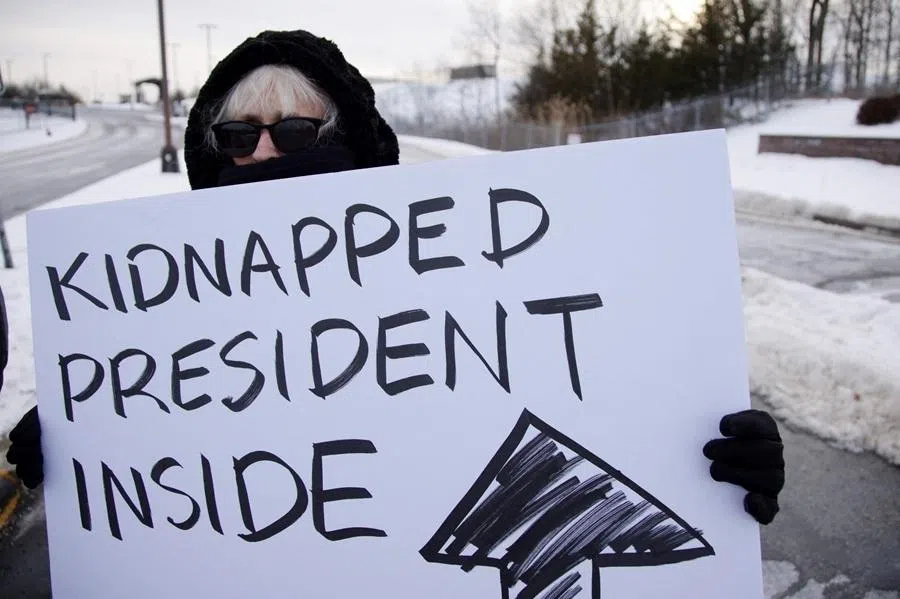[Video and text] A mountain can have many tigers and every tiger has its own problems
[Video and text] Ezra Vogel, East Asian expert and thinker extraordinaire, shares his views on China, the US, Japan, as well as global trends, in an exclusive interview with Chow Yian Ping, editor of ThinkChina.
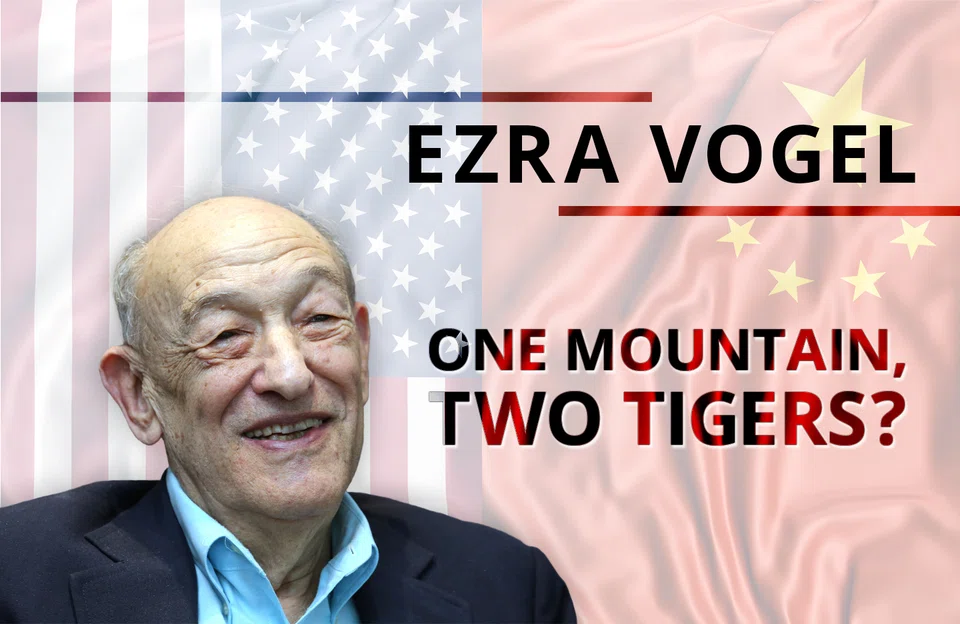
Professor Ezra Vogel is a sprightly 90-year-old with a twinkle in his eyes. Described by Bilahari Kausikan, chairman of the Middle East Institute, as the world's "absolute emperor of East Asian studies", the patient professor sat down for a 90-minute interview with Lianhe Zaobao and ThinkChina*. He spoke in two languages, English and Mandarin. If we could, he would have been able to do one in Japanese as well. The Henry Ford II Professor of the Social Sciences Emeritus at Harvard University was in Singapore to attend the Middle East Institute 2020 Annual Conference.
Vogel has spent about six years of his life in East Asia and is a prolific author of numerous books on the region. Last year, he published the book China and Japan: Facing History, which provides readers with a clear and concise documentation of the relationship between China and Japan in the 1400 years since written records were kept on the two countries' interactions.
His Japan as Number One: Lessons for America (1979) is considered a textbook on understanding the rise of Japan, and it even helped the US prepare for Japan's economic take-off in the 1980s. In 2011, he published Deng Xiaoping and the Transformation of China after ten years of research and writing. The book offers insight into Deng's pivotal role in the building of a modern China.
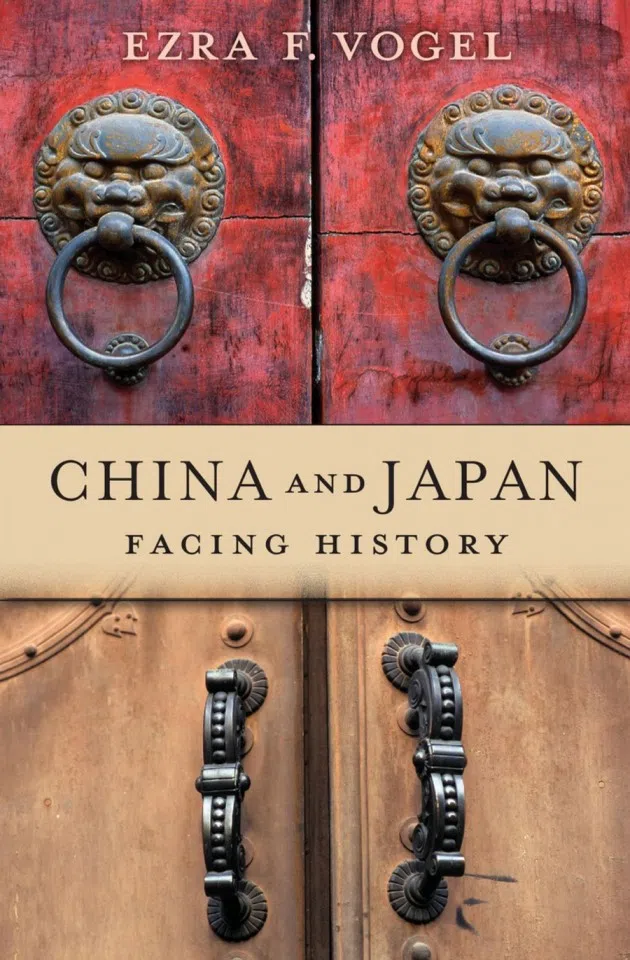
Proud of the American system
Vogel was born into a Jewish family in Ohio in 1930. He studied at Harvard University and returned to his alma mater to teach in 1964. In 1972, he succeeded John Fairbank to become the second director of Harvard University's Center for East Asian Research (now renamed Fairbank Center for Chinese Studies). During the Clinton administration in the 1990s, Vogel served as a national intelligence officer for East Asia at the National Intelligence Council.
To Vogel, the US has been a dominant power in the world since the end of the 19th century. It gained brilliant creativity by being a country with open immigrant policies. Over the last century, the US has become accustomed to being the world's strongest power.
He says, "We [America] were the only major power that was in really good economic shape after World War II, and we had a special position internationally. I am proud of that generation, which I consider my generation."
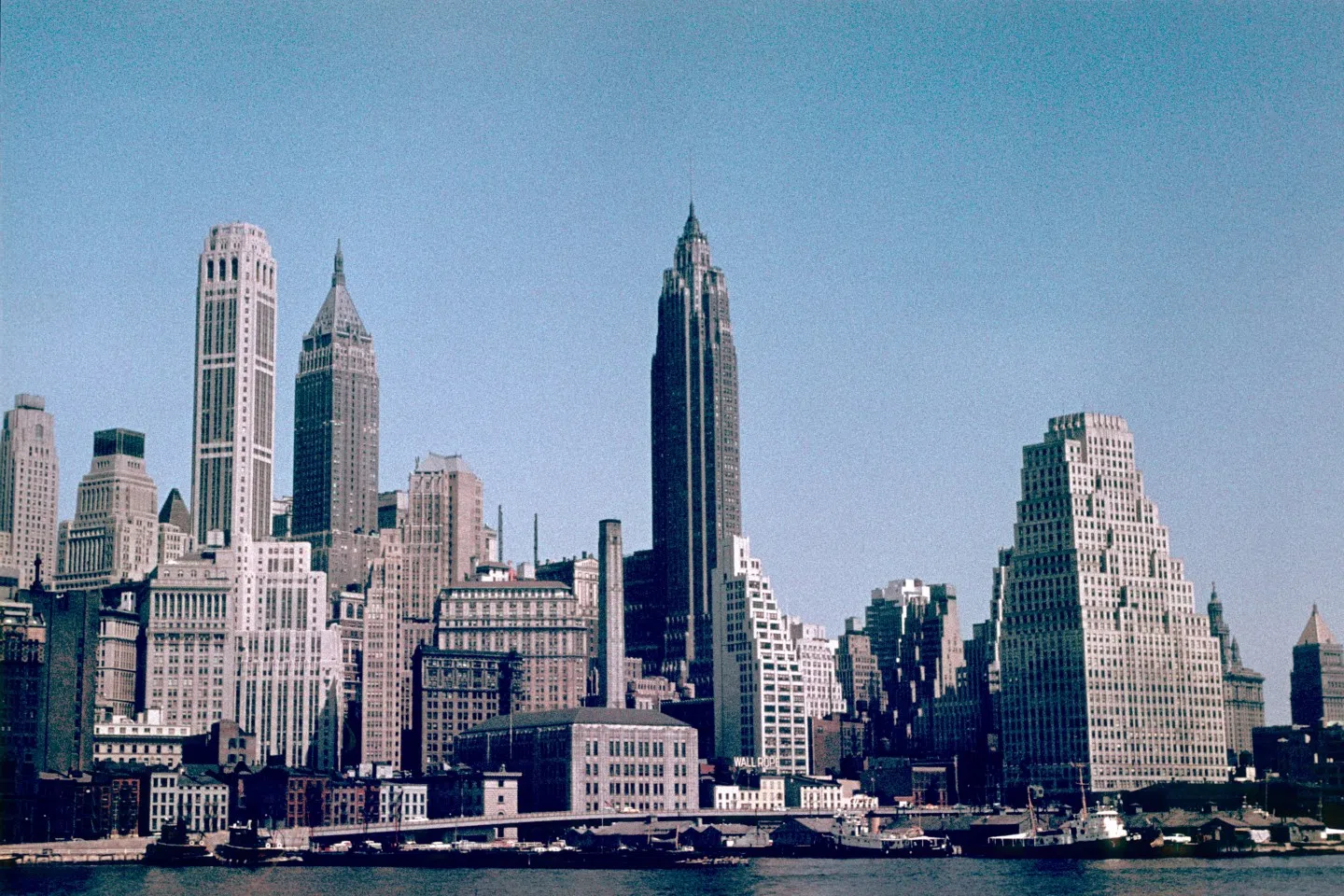
However, the Americans are well aware that its economic base is no longer as strong as before as industries have left the US for other countries due to technology transfer and availability of cheaper labour. He explains, "While we're confident that we are still a strong nation, we have so many internal problems between the rich and the poor; we're trying to find a medical system, and there are cleavages in society. We're a much more divided and troubled country now, so we don't have the easy confidence that we had 20 years ago."
To make matters worse, the US is now faced with an Asian superpower that is surpassing it in economic scale - China. In terms of GDP in PPP, China is the largest economy, with a GDP (PPP) of $27.31 trillion.
"It's a real shock to the United States, and especially because China has a different political system. A Communist country is very frightening to the Americans, and the proletarian system is also very frightening to us," Vogel elaborates.
A mountain with two tigers?
Vogel notes that China's rise has stoked strong anti-Chinese sentiments among Democrats and the Republicans in Washington.
In July 2019, Vogel and a group of China experts in the US published an open letter titled "China is not an enemy" in The Washington Post. The letter, signed by 100 individuals from the academic and policymaking community, detailed problems in the US's approach to China, and presented seven propositions representing their collective views on China. Following its publication, numerous other scholars also signed the letter online.
Evidently, Vogel is sympathetic towards China and hopes that the two powers can find a way to work together, in spite of their trade and tech wars. This seems to imply a possibility of peaceful coexistence between two major powers. But are such scenarios feasible in reality?
Vogel cites examples, "I think beginning in the late 19th century, when the United States was surpassing England, we got along with England moderately well. And even though Japan was quite a different country that was rising and becoming an important power, until the 1930s, we had pretty good relations with Japan also. So I don't think it should be taken for granted that the United States cannot coexist with other great powers."
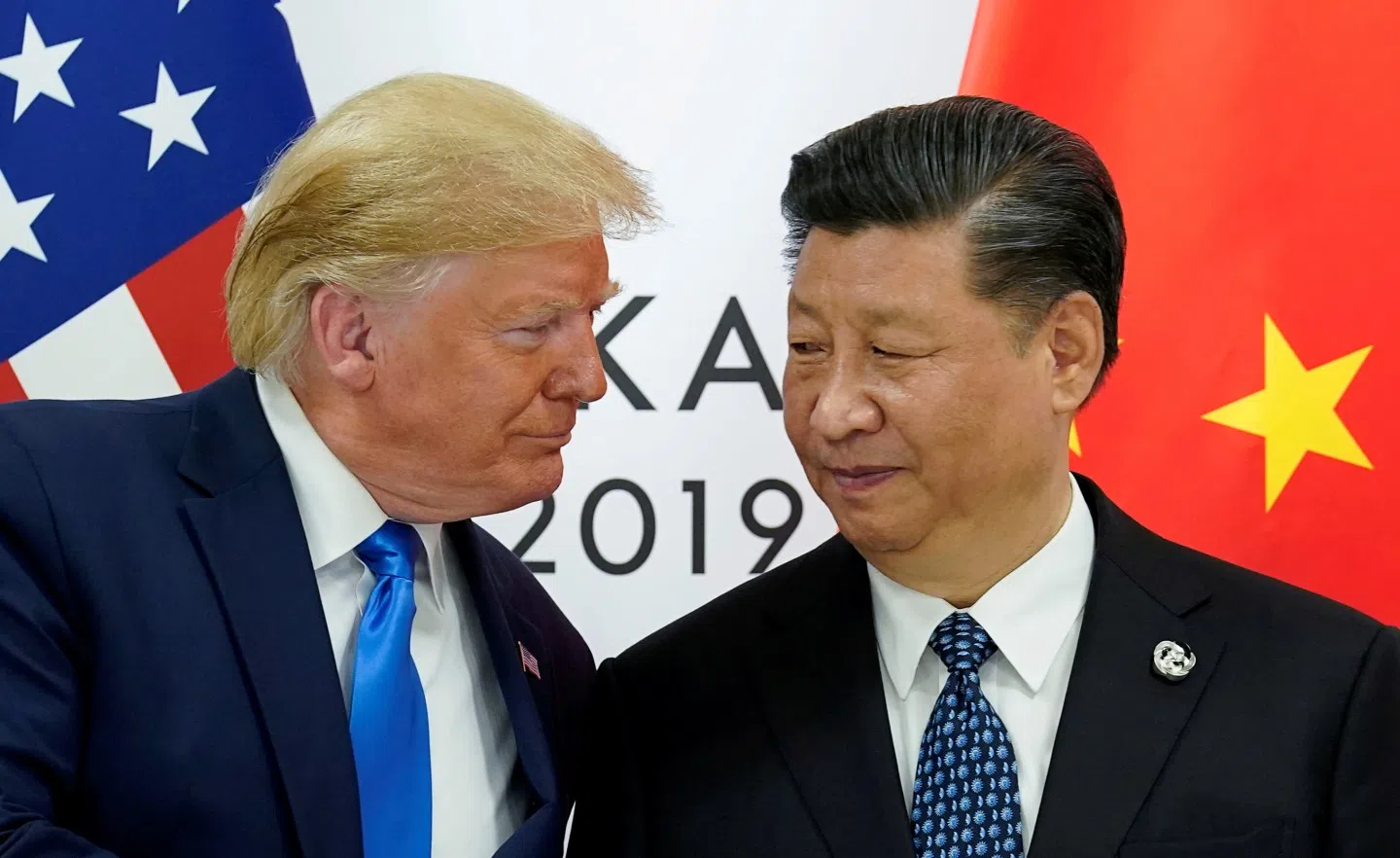
Vogel adds optimistically that it is in both the interests of China and the US to find a way to work together. He says, "We're different, and I don't think that the mountain can have only one tiger. It can have many tigers."
Amused, I echo, "Many tigers?"
"Yes, as long as they don't behave too fiercely," Vogel replies with a laugh.
Americans worry that China won't play fair
The Chinese saying goes: "One tiger will inevitably be hurt in a tussle (两虎相斗,必有一伤)." Vogel's solution is to find ways in which the two powers can cooperate, and establish a structure and base of understanding. "This way, we [will] have more confidence in each other," he explains.
Many in China feel that the US wants to hold them back, just like many people in the US are also afraid that if China begins to gain more power in the world, it will be tough on its own people and the rest of the world, just as it is now in Hong Kong, Xinjiang, and Tibet.
"And the question now, for many Americans, is: will they [China] continue to allow American companies to operate in China, the way they did when they were learning, or will they try to push them out in favour of their own companies, or will the government play that role of pushing them out?" says Vogel.
He believes that the Americans have a strong sense of fairness and believe in sportsmanship and fair play. "When we fear the other party is not playing fair, we become furious and very upset. And the question in many Americans' minds now is: is China playing fair?"
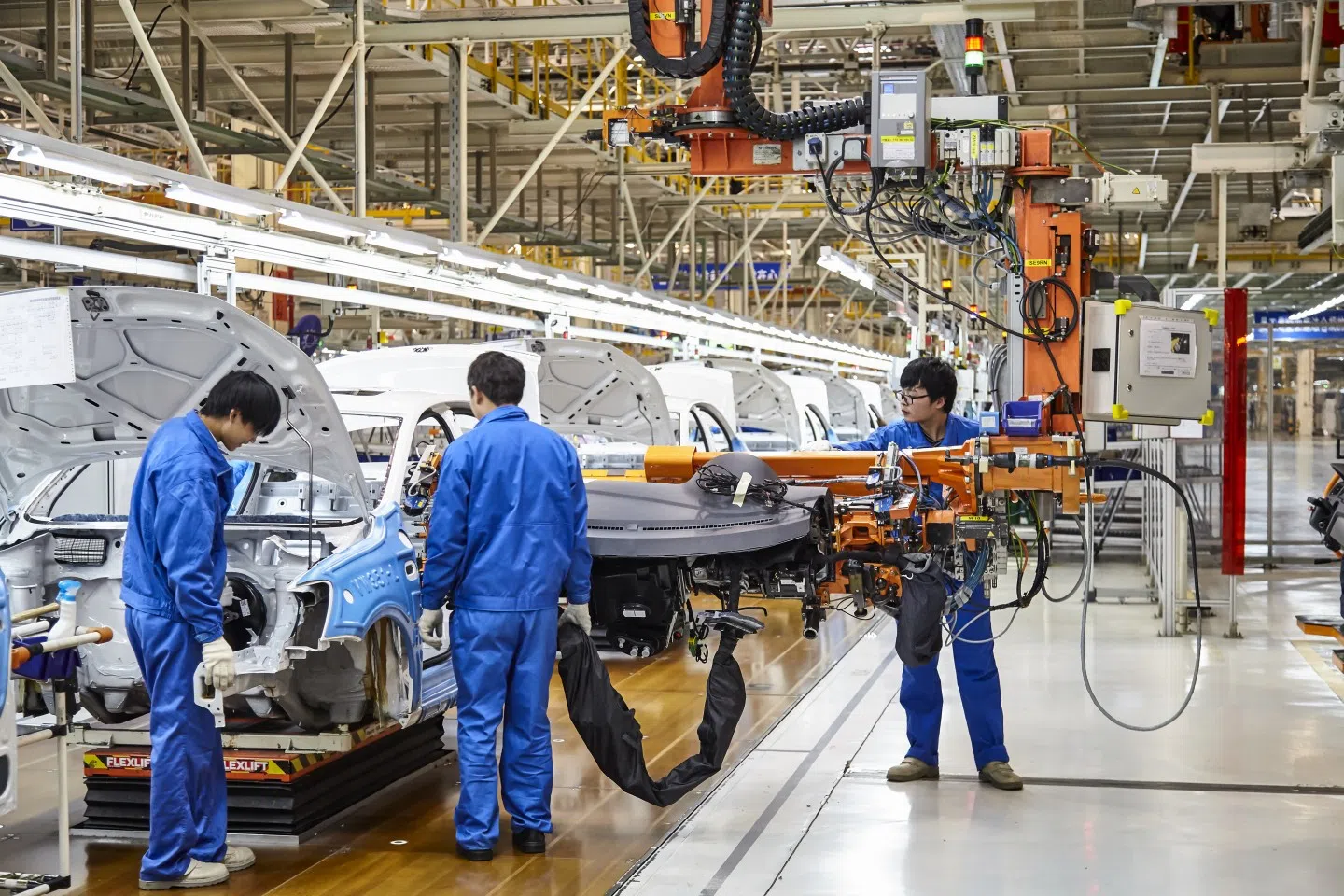
His answer to that is that China is a very complicated country, and unifying 1.4 billion people is not an easy task. Thus, generalisations cannot be easily made. Nonetheless, he can think of numerous examples off the top of his head that may provide some insight to the question.
"While there are efforts to give opportunities to foreign countries, Google is not allowed to operate openly in China. Foreign scholars also have difficulty getting access to Chinese archives. For example, the American Consulate in Guangzhou is not allowed to see top academics in China. And many foreigners who want to use libraries in China find that it's not convenient as well. Many Americans did not get visas. People who stayed in Xinjiang, even 15, 20 years ago, have not been allowed to get visas. One American scholar, Perry Link, rode in an automobile with Fang Lizhi in 1989, and he's not been allowed to go into China," he says.
To the Americans, that's not playing in an even-handed way. Says Vogel, "We, in the past, have not been closed to foreigners in the same way. But now, America is concerned. How do we insist on reciprocity when China is so strong, and how do we protect our own high technology secrets from being picked up by foreigners who would use it for their own advantage and not for our advantage?"
China is going backwards in its reform and opening up
In terms of openness, Vogel feels that China is going backwards even with its reform and opening up policies. In fact, China was "more open than it is now" during the days of Deng Xiaoping (from 1978) until maybe ten years ago.
Why is that?
Vogel believes that the Chinese look at the experience of the Soviet Union and Gorbachev, and think that if they loosen up too much, the country will fall apart. "Especially since China has so many different parts, maintaining unity will require tighter governmental control. And in the last few years, since it's [China] trying to gain more control of corruption, that may have led to tighter control over more people as well. When people are unhappy [with the government], they would feel they need some ways to control them in a tighter way also," he explains.
Many Chinese research experts, and Chinese academics based outside of China, have expressed hope for more openness in China. They become frustrated when they see that the opposite is happening. However, says Vogel, "That's a very hard judgement for foreigners to make. But those of us who care about China and who will like to see it succeed, and will like China to get along with other countries, feel that it's not possible to have such tight control over information. Because when you have 350,000 Chinese students in the United States, and a hundred million people going abroad every year, it's not possible to control information the way that some leaders in China would like to do. The availability of different ideas is so great that they cannot maintain control over information."
Solving the Hong Kong and Taiwan problem
Moving on to the recent Hong Kong protests and Taiwan's presidential elections, I suggest that much as the processes and participating parties are complex and complicated, the younger generation in Hong Kong and Taiwan just want to see a freer society. Vogel agrees that young people are hoping to see a China that is more open: "They like the freedom that they enjoy now, and would like to see that continue. They have doubts as to whether they would achieve that if they were ruled like Beijing."
The ideals of the younger generation and the authorities in terms of the society's degree of openness are going in opposite directions. Vogel believes that the only way these two sides can reconcile is if the authorities gained more confidence to allow more freedom. "I think Beijing leaders have to feel confident that if they allowed more freedom domestically, their country would not fall apart," he says. "They need to believe that if they allowed people to discuss more ideas openly, they could still maintain rule and control over their system. If they felt that way, then I think they could be more generous to Hong Kong and Taiwan."

But Vogel is also aware that differences in the historical experiences of the Americans and Chinese have led to different understandings and definitions of an ideal society.
Vogel explains, "If you look at Chinese history in the 19th and 20th century, there were so many internal quarrels and so much disorder, and people suffered. In such a large country with so many differences, different cultures, and standards of living, maintaining order is difficult. Some people in China are willing to accept restraints on their freedom in order to have order."
The deep-rooted trust issue
As for China's international image, Vogel points out that most Western countries find it hard to trust reports and statements by Chinese state media because they regard China as a country that is strictly monitored.
He explains, "The Chinese feel so much confidence and they're trying to broadcast their ideas. But then some statement comes from China about the Uyghurs, about how they've had re-education campaigns, and former reporters who've seen those places know that those reports are not accurate, so they cannot believe them. And for people who work in American defence, when they heard about the South China Sea, China talked about building up little islands and said that these have nothing to do with defence. But then a few years later, China built defence places in those little islands. So the people in our national defence are very sceptical about what they hear about Chinese intentions."

Vogel adds that differences in institution and ideals have led to numerous phenomena in Chinese society that Americans are unable to understand. One example would be China's omnipresent facial recognition system. "We read about facial recognition where people go to some place and then are being recognised; it's very scary. Even one of my Chinese friends, we used to say: 'The sky is very high, and the emperor is far away.' But now, the emperors are never far away; we can no longer say that. The sky is high, but 没办法 (there's nothing we can do; we can't hide). And they used to say: '北京有政策,我们的地方有对策 (Beijing has its policies, but we have our countermeasures).' 现在没办法 (They can't do that now), because the controls are so tight now that they cannot resist the pressure from Beijing," Vogel elaborates.
Opening up is a sign of leadership confidence
However, Vogel feels that no matter how hard China tries to promote a model that heaps praises on rapid economic development under an authoritarian rule, that model remains unattractive to the Westerners who have tasted the goodness of freedom and democracy.
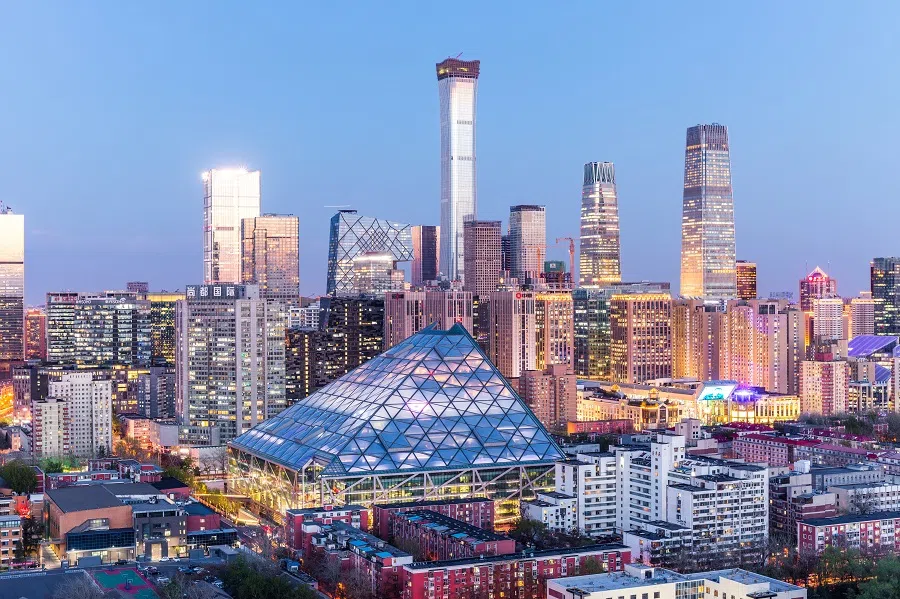
He says, "Those of us who enjoyed freedom in the West would not want to live under a system where we have such tight control as people in China had. In American universities, we are able to say whatever we want and develop ideas with whatever we have. There was no political commissar, and nobody reporting our class to some higher authority about what we were saying. We like that system. And we feel that our science, thinking, and research is held by that kind of freedom. And sometimes, people with different ideas turn out to be most creative. In Harvard University, somebody like Bill Gates did not follow the usual classes. He even left Harvard. But he had the freedom to develop different ideas and turned out to be very successful."
But for many Asian governments and individuals, the "democracy" that America speaks about is many a time forcefully imposed on others. It is often accused of its hypocrisy and double standards in applying its democratic principles. In reply, Vogel says, the US has never dreamt of converting China into a country like itself.
"I think what Americans felt about China, what is in common, is that we hope as they gain economic basis for success, and as people have the freedom to move around, that they'll become a fairly open, easy society that will not be too authoritarian and too dictatorial, and that would be open and cooperative with other countries. And a lot of people in the United States now question whether that's true. Whether China will be open, and whether it will continue the opportunities for foreign countries that played a big role in its economic take-off," he explains.
So, will China become the open and cooperative nation that Vogel hopes to see? His answer: it depends on how confident their leaders are.
Decoupling of China and the US is impossible
Observably, these are deep-rooted conflicts in mindset and culture between China and the US that cannot be resolved by changing a president. Vogel says that China has already made many gains, and even if it is over-confident now, China and the US have to work together.
Vogel explains, "The world is too small, and issues are too interrelated. We must continue to find a way that we can work together for common interest because so many issues like the environment and international order, really require cooperation. So there are many of us who are trying to find ways. Even though China is sometimes very tough, and some Chinese are quite arrogant - some give lectures to Americans, just as Americans give lectures to Chinese - we still have to find some way to work with China. It's very powerful, very strong, big economy, advanced science and technology now, and the world is too small and too integrated to try to be separate."
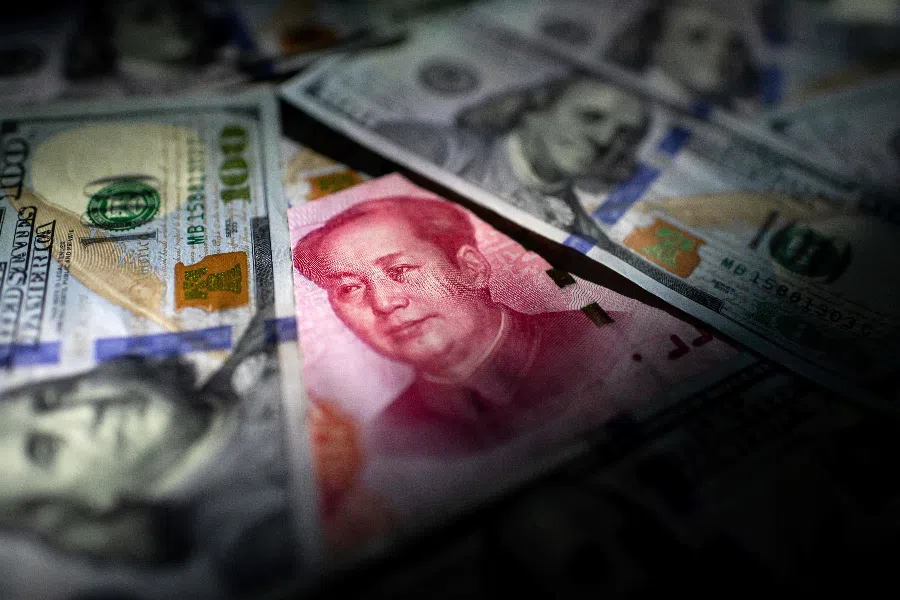
To him, decoupling between China and the US - a hot topic that constantly sparks debate - is impossible.
He says, "There's no way to have complete decoupling. When you have 350,000 Chinese in the United States studying, how can you have decoupling? You can have some decoupling, it could be that certain high technology companies will not share with the other side, but companies are very creative. If we cut down imports from China, then you'll shift to Vietnam, and Vietnam will shift to the United States. And some Chinese students abroad will bring back foreign ideas and foreign technology and buy foreign products. So how can you have complete decoupling?"
Japan has already apologised
Vogel's new book, China and Japan: Facing History, traces the evolution of relations between the two countries. On issues pertaining to China-Japan relations, many Chinese, including overseas Chinese, will always recount Japan's wrongdoings during the second world war, and insist that the Japanese have not formally apologised for their wrongdoings. Vogel does not agree. He believes that Japan has already apologised, and not just once.
"[Former Japan prime minister] Murayama issued a formal apology [in 1995], mostly for the damage and the horrible things that they did in World War II. Other political leaders have also apologised," Vogel declares.
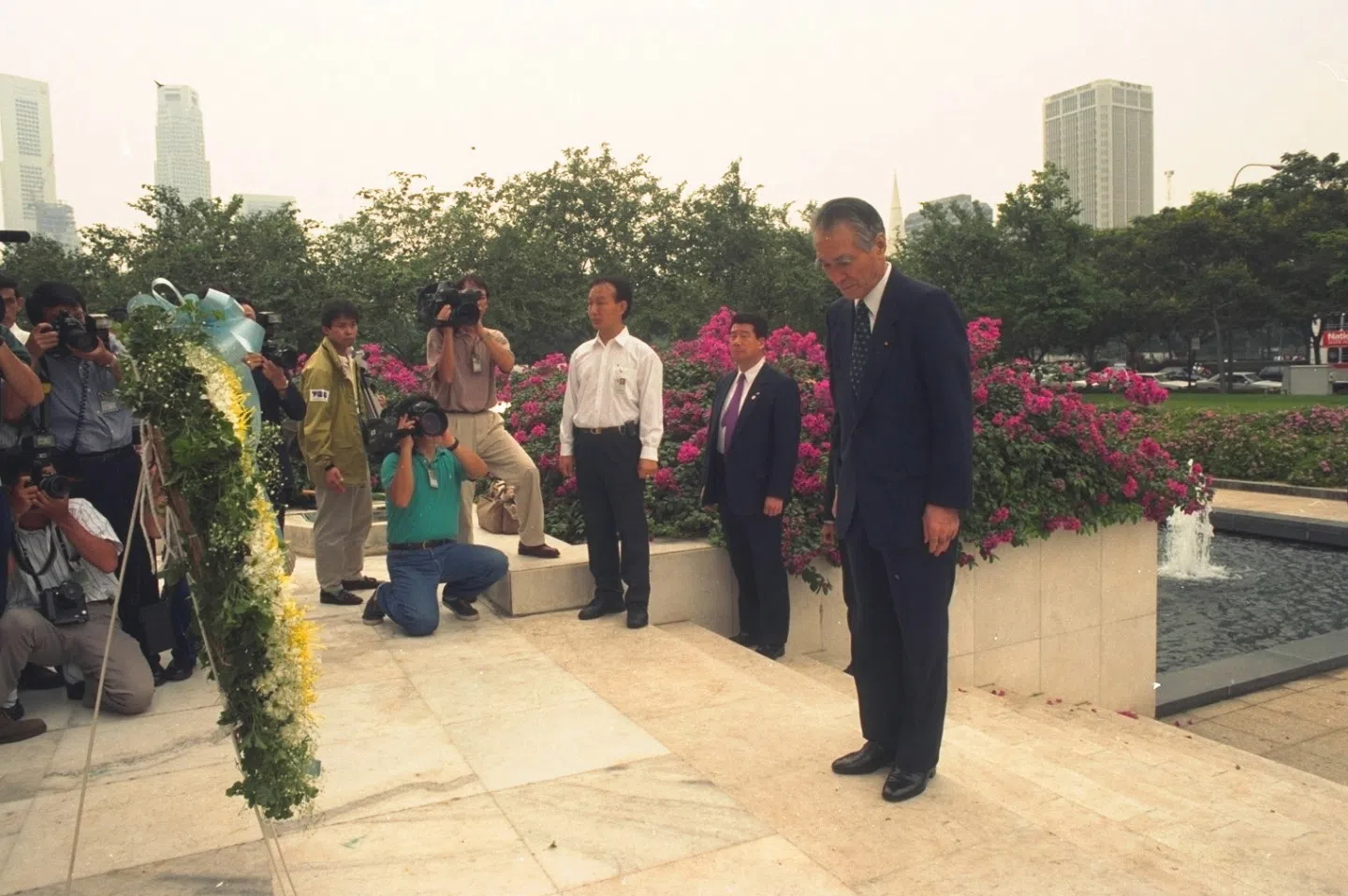
However, he does think that Japan could have done more to salvage its image in the eyes of the Chinese and Southeast Asian Chinese. He says, "If they would teach in the high schools more about the horrors that Japan did in World War II, and if they acknowledged more openly and in more detail, some of the horrible things they did in World War II, I think it would be wise for Japan and for Japanese to have more information about the horrors of World War II. Then, they would have better relations with the people in Asia."
Vogel adds, "Japanese will say, when I put this to them, that, 'Since World War II, we are not that bad. We have pursued the path of peace, and we've been generous to other countries and supplying information and technology. And even though we don't apologise every day, we have apologised, and we have now become good citizens, but people of other countries don't always appreciate it.' The Japanese will say, 'The Chinese do not say 'I appreciate'.' And the Chinese will say, 'The Japanese did not apologise.' So I think both sides could do more to improve the relationship between the two countries."
Chinese, Japanese and Americans
Vogel has been visiting Japan at least once a year since 1958. Last October, he spent a couple of weeks in various Japanese cities. He also holds a monthly gathering at his Boston home with university students to discuss the future of Japan.
He says, "They are worried about the future [of Japan]. If you ask Japanese students, 'Oh, how's your country doing economically?' 'Oh, not very good.' 'Where would you want to live [in the future]?' 'Japan.'
"But if you ask the Chinese, 'How is your country doing?' 'Oh, we're wonderful.' 'And where would you want to live?' 'Maybe United States, maybe Canada, maybe Australia, maybe China.'
"But the Japanese answer is very clear. They want to live in Japan - it's good living there."
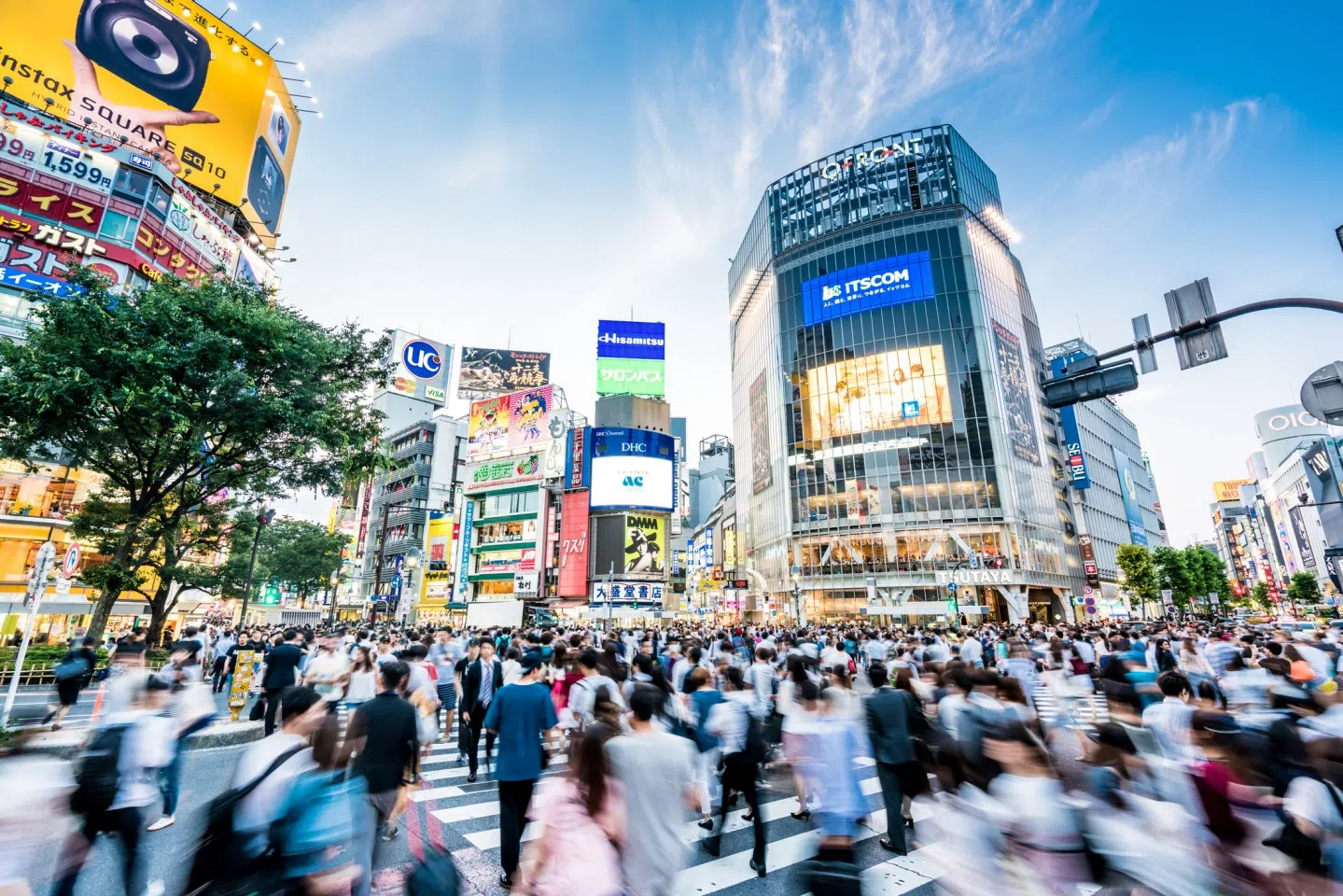
From conversations with people in the region, Vogel concludes that the Japanese have mastered the art of listening, "You get ten Japanese together, and they very quickly form a harmonious group because they're sensitive to the needs of other people, and then tries to understand how to work."
"I find many Chinese groups more assertive and when you get ten Chinese together, very often you'll hear, 'I want this.' 'I want that.'
"So I think by being harmonious and concerned about the other person, and how that other person is doing, makes society work pretty well."
However, he acknowledges that this is not universal as there are many different types of Japanese and Chinese. What about the Americans then? Vogel laughingly admits that the Americans are very assertive too.
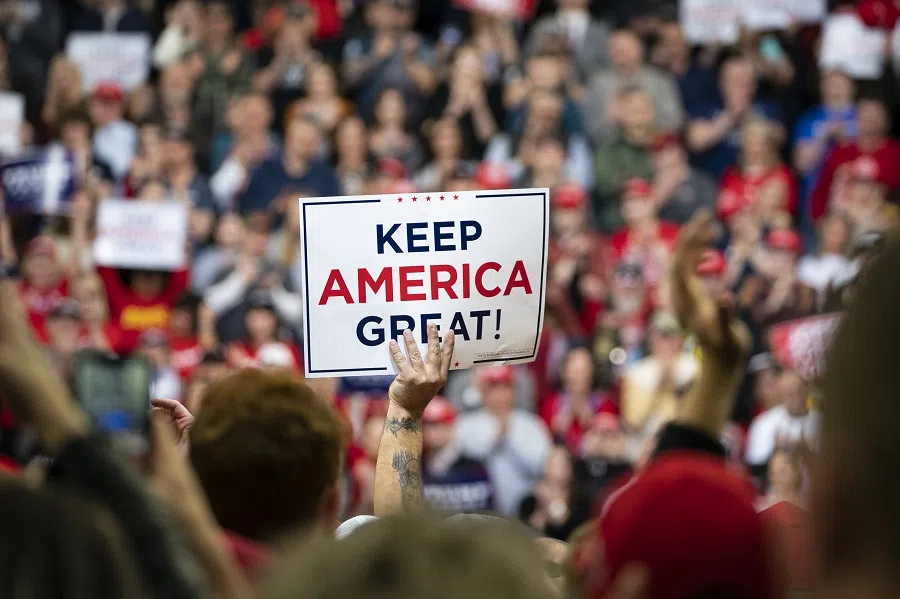
He explains, "The Americans are more assertive than the Japanese, and we being a large, diverse country, we have many different concepts of how people are, and have many people who are very assertive. Many Americans now feel that the country is more troubled. We don't have as many opportunities as we did, and I think that new media has divided the country. When I was young, we had two or three television stations and we watched the same programmes. Now, people who believe in Trump watch one programme, and people who hate Trump watch another programme. So there is not the natural empathy between those two different groups like it was when we had single TV stations."
I jokingly remark that perhaps this is the reason China seeks to control everything. Vogel burst into laughter saying, "China has its own problems. It's even more difficult than the United States."
*At the time of the interview, the Wuhan coronavirus had not yet spiralled. Hence, the discussion focused on the history of China, the US and Japan, as well as global trends.





